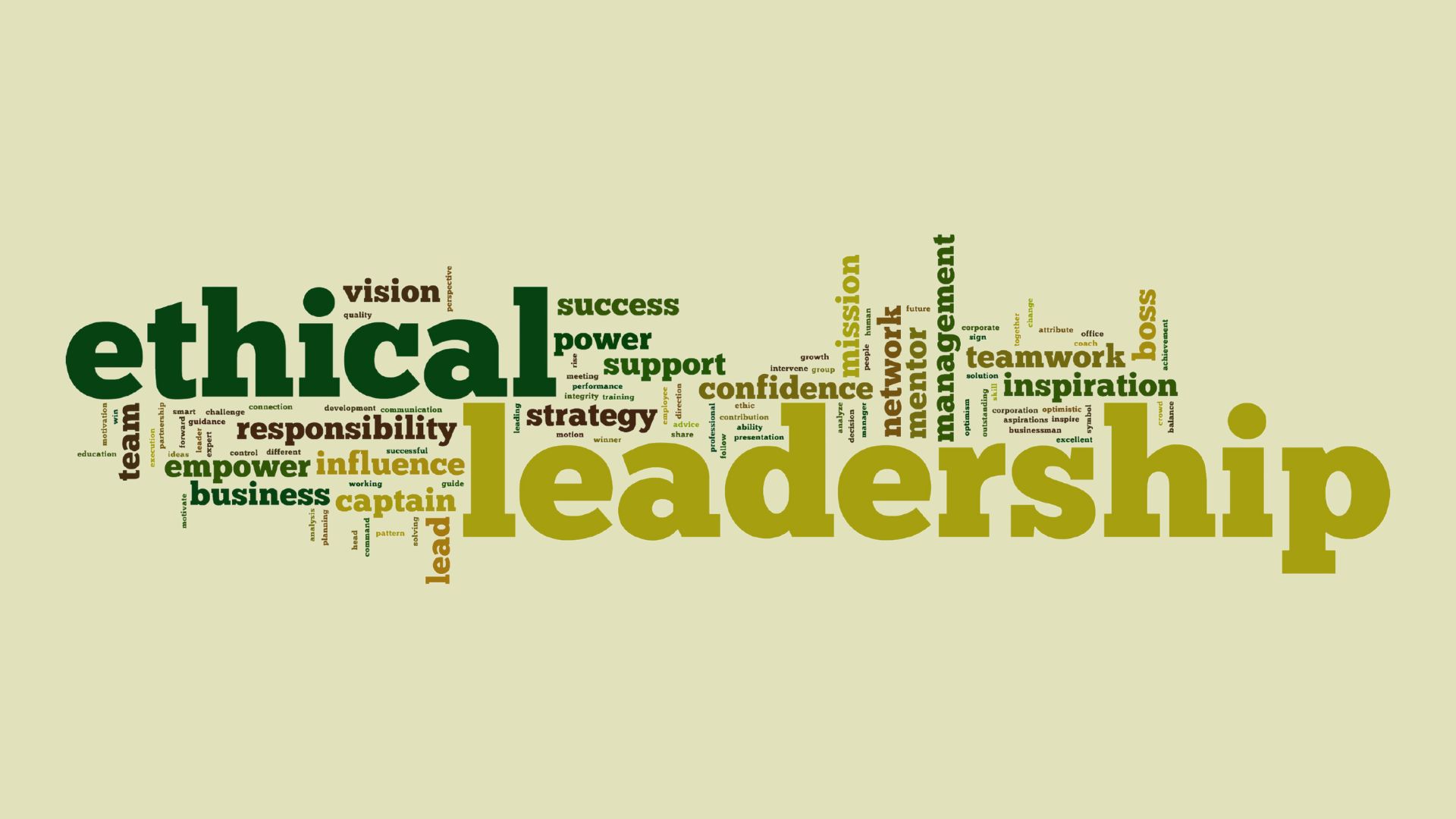Ethical Leadership
Ethical leadership is the practice of demonstrating appropriate conduct inside and outside the office. It is mainly concerned with moral development and virtuous behavior. Ethical leaders display good values through their words and actions (Kuligowski, 2023a).
Leaders who uphold ethics are honest and faithful leaders. Ethical leaders make a commitment to speaking the truth to power, dealing fairly with rivals, and maintaining open lines of communication with peers and subordinates.
“… Behaving unethically can automatically take a leader out of the A-league and may heavily damage their personal or company brand. Moreover, unethical behaviors often deteriorate one’s self-esteem, leading to a suboptimal outcome and a missed opportunity to express one’s full potential.” (Villirilli, 2021b)
Ethical leadership reflects in behaviour and actions. Ethical leaders are fair, honest, transparent, supprtive to teams and are always determined to the success of the organization. Ethical leadership encompasses following attributes that leads to the success of organization:
Talking to all parties involved is the primary concern of transparency. Maintaining a transparent communication style, welcoming criticism, and sharing the data required by others, to perform their tasks truthfully are all part of a good leader that leads to the excellence of educational institutions.
Being fair is treating everyone equally, providing opportunity to all without showing preference, and denouncing unethical behavior, manipulation, and any other actions that can endanger someone.
When principles, language, and behavior are congruent and coherent, integrity is demonstrated. Integrity requires more than just talking the talk; their action speaks louder than the words.
Ethical leaders support their teams in both good and difficult times. When the storm strikes, they are at the front, providing guidance and aiding in their teams’ success. They are aware that the interests of their teams and organizations come before their own.
Leaders make numerous decisions and very much interested in long-term success. Furthermore, it is in favor of meritocracy and treating everyone equally, irrespective of their age, status, post and position or any other aspect that can give rise to discrimination.
Their credibility and image would be damaged if they do not hold themselves to the same standards that they do for other people. Setting a good example pays dividends more than anything else, but it is an intentional decision that needs daily attention.
When something goes wrong, moral leaders don’t downplay or conceal the incident. Rather, they acknowledge their error, provide an apology, work to resolve the problems. This demonstrates their concern and their efforts to make the worst of a bad situation better.
As Napoleon Hill states, “The successful leader must be willing to assume responsibility for the mistakes and the shortcomings of his followers. If he tries to shift this responsibility, he will not remain the leader. If one of his followers makes a mistake and shows himself incompetent, the leader must consider that it is he who failed.“ Leaders who are ethical take responsibility for their actions, lead by example, and use their words and acts to influence the present and future.
No matter who are their subordinates, team members and what makes them unique, ethical leaders show respect for everyone around them. This demonstrates their commitment to diversity, inclusivity, and listening to all stakeholders. This attribute cultivates harmony, trust and faithfulness in the team that foster the excellence in higher education.
Leadership and ethics are inextricably linked. Although some people believe that one must choose between acting morally and being successful, this is unethical.
REFERENCES
Amelia. (2023, July 12). What is Ethical Leadership? Theory, Books,Examples. Learn
Transformation. https://learntransformation.com/what-is-ethical-leadership-during-leadership-transformation/
Bradley University. (2021, June 15). Ethical Leadership in Education: Tips and Resources. Bradley University Online. https://onlinedegrees.bradley.edu/blog/ethical-leadership-in-education/
Darby, J. (2021, October 1). What Is Ethical Leadership? Attributes, Traits, & Examples. Thomas International. https://www.thomas.co/resources/type/hr-blog/what-ethical-leadership-attributes-traits-examples
Ethical Leadership: Fostering a Culture of Responsibility in Organizations. (2023, October 23). The Economic Times. https://economictimes.indiatimes.com/jobs/c-suite/ethical-leadership-fostering-a-culture-of-responsibility-in-organizations/articleshow/104644391.cms?from=mdr
Ko, C., Ma, J., Bartnik, R., Haney, M. H., & Kang, M. (2017). Ethical Leadership: An Integrative Review and Future Research Agenda. Ethics & Behavior, 28(2), 104–132. https://doi.org/10.1080/10508422.2017.1318069
Kuligowski, K. (2023a, February 21). How to be an ethical leader. Business News Daily. https://www.businessnewsdaily.com/5537-how-to-be-ethical-leader.html
MasterSoft. (n.d.). Promoting Student Engagement: The Key to Academic Excellence in Higher Education. Www.iitms.co.in. https://www.iitms.co.in/blog/student-engagement-key-to-academic-excellence-in-higher-education.html
Team, E. (2023, August 23). Promoting Academic Excellence Through Visionary Leadership. Higher Education Digest. https://www.highereducationdigest.com/promoting-academic-excellence-through-visionary-leadership/
Villirilli, G. (2021a, April 9). The importance of being an ethical leader and how to become one BetterUp. BetterUp. https://www.betterup.com/blog/the-importance-of-an-ethical-leader
Dr. Rafat Khanam
Associate Professor
Department of Languages
(In-charge English and Foreign languages)
Faculty of Arts and Social Sciences
Swami Vivekanand Subharti University
Meerut, Uttar Pradesh India
Email: dr.rafat.language@gmail.com
Contact no. 9634567094






